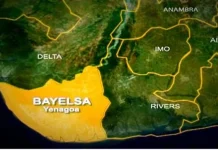Vice President Yemi Osinbajo has said that the Federal Government will be widening the tax net while ensuring that those tax rates are not increased.
He shared this with a delegation of the Chartered Institute of Taxation of Nigeria (CITN) led by the institute’s President, Adesina Adedayo.
Osinbajo said, “While the Federal Government will not be raising tax rates at this time, based on the Finance Act 2019, it is already empowered to widen the tax net.
“This includes collecting taxes on the Nigerian income of global tech giants with significant economic presence here, even if they have not established an office or permanent establishment, and are currently not paying taxes in Nigeria.
“In this regard, Section 4 of the Finance Act 2019, provides that the finance minister, may by order of the president, determine what constitutes the significant economic presence of a company, other than a Nigerian company.
“We have had severe economic downturns, which of course implies that we may not be able to collect taxes with the aggressiveness that would ordinarily be expected.
“I think the most important thing is that we must widen our tax net so that more people who are eligible to pay tax are paying,” Osinbajo said.
Akande siad in the statement that the vice president also noted that several efforts had been made in that regard.
READ ALSO: We Can Use Gas To Diversify Nigeria’s Economy – Minister
“I am sure you are aware of the initiatives including the Voluntary Assets and Income Declaration Scheme (VAIDS), which was also an attempt to bring more people into the tax net, including those who have foreign assets.
“Many of them do incredible volumes here in Nigeria and in several other parts of the region.
“We have drawn up the regulations and we are prepared to go, and I think that we are at least in a good place to tap into some of the tax resources we can get from some of these companies.
“Besides the Federal Government, a recent Bloomberg news article reported that “Governments around the world are grappling with how to modernise their legal frameworks to account for the global reach of the digital economy, reshaping how policymakers think about issues as varied as monopoly power, taxation and workers’ rights.”
He said that international talks were currently ongoing in Paris on global standard rules for governments to receive taxes from such digital and technology firms with significant economic presence in foreign countries. Osinbajo gave further explanations on legal provisions for the subject matter.
“In Nigeria, according to the Finance Act 2019, a company will pay taxes if it transmits, emits or receives signals, sounds, messages, images or data of any kind by cable, radio, electromagnetic systems, or any other electronic or wireless apparatus to Nigeria.
“This in respect of any activity, including electronic commerce, application store, high-frequency trading, electronic data storage, online adverts, participative network platform, online payments and so on, to the extent that the company has significant economic presence in Nigeria and profit can be attributable to such activity.”












